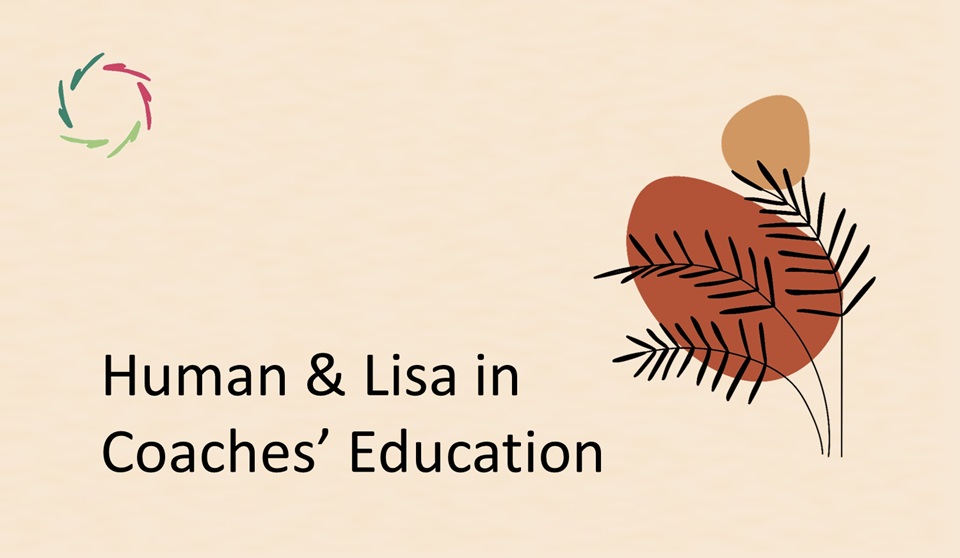Human & Lisa in Coaches’ Education

Becoming an AURELIS coach is a deep personal growth process. Unlike traditional training programs that focus on techniques, AURELIS coaching is about growing into a way of being. This requires both self-reflection and real human experience, which is why a hybrid model of education – combining human mentors and Lisa – creates the best environment for deep learning.
Lisa plays a key role in this process, but she does not replace human mentors. She enhances and extends their work, ensuring that what is learned stays alive and continues evolving (see Growing towards AURELIS Coach).
Triptych
This blog is part of a triptych about Lisa’s role in training and further support of (AURELIS) coaches. The order in which best to read them is:
- Lisa as Facilitator of AURELIS Coaches
- Lisa’s Adaptation to Different Coaches’ Styles
- Human & Lisa in Coaches’ Education
The hybrid model: combining human presence and Lisa’s continuity
Learning does not happen all at once. It unfolds in waves — intensive moments of human-led training, followed by periods of reflection and integration. These waves are necessary because deep personal growth takes time.
Lisa acts as a bridge between theory and lived experience, helping coaches digest and apply what they learn. Instead of losing depth between training sessions, Lisa keeps insights active. She can ask deepening questions, provide self-reflective exercises, or bring a coach’s attention back to key AURELIS principles.
When working with human mentors, Lisa’s presence ensures that training is more than just a learning event. It becomes a continuous, evolving process, where every insight has the space to settle, deepen, and become part of the coach’s natural way of being (see Lisa as facilitator of AURELIS coaches).
Lisa as a personal guide in coaching development
Every coach is different. Some are naturally more structured, while others work intuitively. Some need more confidence; others need to refine deep listening or inner silence. Lisa adapts to where a coach is in their personal growth.
She can help coaches track their evolution over time, reflecting on their journey back to them. When a coach interacts with Lisa, she does not evaluate or judge. She creates a space for self-discovery. Through subtle questioning, she encourages coaches to explore their unconscious patterns:
- Are you coaching as yourself or as someone you think you should be?
- Where is the line between your personal style and a habitual pattern?
- What happens when you experiment with a different rhythm in your sessions?
By guiding coaches through this process, Lisa helps them remain fluid and authentic in their coaching approach (see Lisa’s adaptation to different coaching styles).
The rhythm of learning: human waves, Lisa’s continuity
AURELIS training is not about learning a method and then applying it mechanically. It is about inner transformation. Human mentors offer deep, immersive learning experiences, but personal change does not happen instantly.
Lisa ensures that the learning process does not stop when the human training ends. Coaches can return to her anytime to:
- Reflect on a training session and see what still needs to be processed.
- Practice their self-awareness between real coaching interactions.
- Stay connected to their inner growth rather than slipping back into old habits.
This way, learning becomes woven into daily life rather than being limited to structured training sessions. Lisa makes sure that what is learned is not forgotten but lived.
The irreplaceable human element
While Lisa provides continuity and depth, human mentors remain indispensable. Coaching is ultimately about human presence, warmth, and connection — aspects that cannot be replaced by AI.
Human mentors bring the human side of:
- Embodied presence — the ability to deeply resonate with another person.
- Unpredictability — they sense what is needed in the moment, beyond any predefined structure.
- Compassion — the subtle, lived experience of being fully present with another human being.
Lisa helps by keeping insights alive, ensuring that coaches come to their human training sessions better prepared, more self-aware, and ready to engage at a deeper level.
The future of AURELIS coaching education
The hybrid model does more than improve individual learning. It strengthens AURELIS as a brand of excellence. It ensures that every AURELIS coach is well-prepared for deep, non-coercive coaching, with both self-guided growth and meaningful human mentorship (see Excellence).
This model also opens the door to expanding access to deep coaching education, allowing more people to engage in meaningful, self-directed learning while remaining anchored in human presence. In the future, this approach could serve as a model for education in many fields — not just coaching but any discipline that values depth, reflection, and authentic personal growth.
Would you like to be part of this new way of learning? Reach out at lisa@aurelis.org and join a movement that blends the best of human mentorship with continuous personal evolution.


